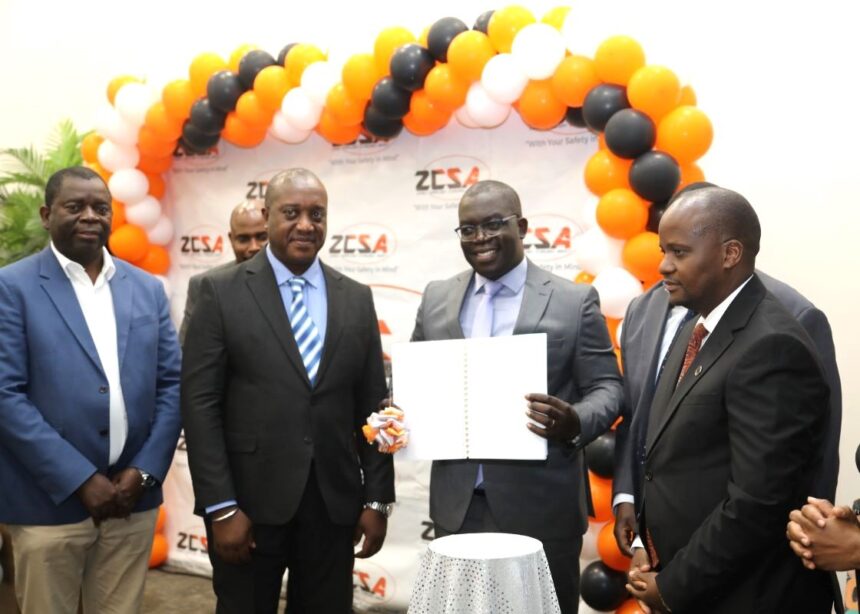By BUUMBA CHIMBULU
AS Zambia accelerates its push toward renewable energy, a hidden crisis threatens to undermine the sector: the rise of counterfeit solar panels and accessories.
Across the country, from bustling urban centres like Lusaka to remote rural communities, unscrupulous traders are flooding the market with low-quality and imitation products disguised as genuine brands.
These fake panels are more than just ineffective; they are a real danger to public safety.
Many fail to deliver the promised energy efficiency and can cause serious hazards, including electrical fires, battery explosions, and damage to household appliances.
Consumers, often investing significant savings in what they believe is a long-term solution, frequently discover within months that the system cannot even power a single light reliably.
Industry experts warn that if left unchecked, this proliferation of substandard solar products could reverse the gains the country has made in expanding renewable energy access.
The consequences are not only financial but also environmental and social.
Substandard panels undermine confidence in clean energy alternatives, slow the adoption of renewable energy, and threaten the country’s climate and energy security goals.
Recognising the seriousness of the threat, the Zambia Compulsory Standards Agency (ZCSA) has acted decisively.
On October 1, 2025, ZCSA began enforcing new compulsory standards aimed at protecting consumers and ensuring that solar energy products meet minimum safety and performance requirements.
The move targets not just solar panels, but an entire range of related equipment, including photovoltaic system design and installation, batteries, and charge controllers.
“These standards aim to safeguard public health while promoting competitiveness in local industries,” said Gerald Chizinga, ZCSA Executive Director.
“By ensuring that only certified and tested equipment is sold, we protect consumers, support responsible industry growth, and help Zambia achieve its renewable energy objectives.”
The new regulations form part of a broader rollout under Statutory Instrument (SI) No. 20 of 2025, issued on May 9, 2025, by the Minister of Commerce, Trade and Industry.
The statutory instrument declared 41 new compulsory standards covering solar equipment, building materials, food products, fertilisers, packaging, and more.
With these additions, the total number of products under compulsory standards rises to 102, demonstrating the government’s commitment to strengthening consumer protection across multiple sectors.
The solar-specific standards are comprehensive. They include the Photovoltaic System Design and Installation – Code of Practice for Off-Grid Systems, which prescribes the requirements for designing and installing off-grid photovoltaic energy systems for homes, schools, offices, and industrial buildings.
ZCSA has also introduced specifications for batteries used in photovoltaic systems, defining minimum performance requirements for lead-acid and lithium-based batteries.
The standards extend to charge controllers for lead-acid battery-based systems, ensuring they meet strict operational requirements to prevent malfunctions and hazards.
The economic consequences of counterfeit solar products are significant. Consumers often incur double costs – first purchasing the defective system and then replacing it with certified equipment.
Legitimate solar businesses also face unfair competition from traders selling low-cost, substandard products, which undermines investment, innovation, and the growth of a sustainable solar sector.
The proliferation of fake solar products threatens Zambia’s national energy goals.
The country has invested heavily in promoting renewable energy access to reduce reliance on hydropower, diversify energy sources, and meet increasing electricity demand in both urban and rural areas.
Counterfeit products erode consumer confidence in clean energy alternatives, discouraging households, institutions, and businesses from making long-term investments in solar systems.
“The implementation of these new standards is a vital step in protecting consumers and restoring confidence in the solar industry,” said Ian Mupeta, chairperson of the ZCSA board.
“It will also promote fair trade and stimulate industrial growth, creating a level playing field for companies committed to producing high-quality, certified products.”
The government’s commitment to regulating the sector extends beyond standards enforcement.
Commerce, Trade and Industry Minister Chipoka Mulenga, who officially launched the new regulations, emphasised that the standards are not merely bureaucratic tools, but instruments for economic transformation.
“These standards empower local industries to compete both regionally and globally while safeguarding Zambia’s reputation as a producer of safe, high-quality products,” Mr Mulenga said.
Industry stakeholders have welcomed the move. Sandra Muchima, Communications Officer at the Zambia Consumer Association (ZACA), said:
“The regulation of solar products has come at the right time. We have observed a growing number of companies importing and distributing solar products in the country, and these standards are necessary to avoid masquerades and substandard practices. We hope that enforcement, which has sometimes been a challenge in other sectors, will be effective and continuous.”
Similarly, the Solar Association of Zambia, through its president, Mr Matanda Mwewa, highlighted the benefits of the standards for genuine industry players.
“Companies investing in quality will now be protected from unfair competition by traders dealing in low-cost, non-compliant products,” Mr Mwewa said.
“This will improve consumer confidence, encourage further investment, and support the growth of a sustainable solar energy sector in Zambia.”
Mr Mwewa also noted that the demand for solar systems has grown rapidly in recent years, driven by energy shortages, unreliable grid supply, and the need for clean, affordable alternatives.
“Over the last few years, Zambia has seen a surge in the demand for solar home systems, batteries, inverters, and pico-solar products. However, this rising demand has also created an avenue for substandard and counterfeit products to enter the market.
By enforcing compulsory standards, ZCSA is helping to protect consumers from unsafe and poor-quality solar equipment while safeguarding the reputation of the industry.”
The economic and social stakes are clear. Many households invest their life savings in solar solutions only to find themselves with faulty equipment that fails within months.
Beyond financial loss, these failures pose safety risks that can result in fires, injuries, or damage to property.
By regulating the market, ZCSA seeks to eliminate these risks, ensuring that only tested, certified, and reliable products are available to consumers.
The new standards also provide a broader framework for industrial and market development.
Beyond solar equipment, the 41 newly declared standards cover building materials, fertilisers, engine oils, food products and packaging materials.
Examples include specifications for precast concrete blocks, steel reinforcement bars, potassium chloride and single super phosphate fertilisers, tomato products, and polypropylene sacks for bulk food packaging, among others.
Each standard specifies minimum safety, quality, and performance requirements to protect consumers while promoting fair competition and industrial growth.
The introduction of these standards aligns Zambia with global practices in safety, trade, and sustainable development.
“These regulations demonstrate our commitment to harmonisation and trade facilitation,” Mr Mulenga said. “They ensure that products on our markets meet minimum safety and quality requirements, protecting consumers and the environment while enabling local industries to compete regionally and globally.”
Consumer protection, however, will only be effective if enforcement is consistent.
The ZCSA has pledged continuous monitoring of the market, inspections, and testing of products to ensure compliance.
Industry associations have called for strong penalties against traders dealing in counterfeit goods and more stringent import controls to prevent substandard products from entering the country.
The benefits of regulation are clear. Certified solar products will deliver reliable energy solutions, increase consumer confidence, and encourage investment in the renewable energy sector.
A well-regulated market also incentivises innovation and technological improvement among manufacturers, creating a more competitive and sustainable industry.
In addition to protecting consumers and industry, the new standards support Zambia’s broader energy and climate goals.
By ensuring that solar systems are safe, durable, and efficient, the country can continue to diversify its energy sources, reduce reliance on hydropower, and increase energy access in rural areas.
Safe and reliable solar energy also contributes to reducing carbon emissions and promoting sustainable development across the country.
Mr Chizinga remains confident that the standards will transform the sector. “We are creating an environment where consumers can trust the solutions they purchase and industries can thrive without unfair competition from substandard products.
These standards are not just regulatory requirements – they are tools to drive Zambia’s economic transformation, enhance safety, and support sustainable development.”
For households, businesses and institutions, the message is clear: invest in solar systems that meet ZCSA standards.
The cost of ignoring regulations is too high – not only financially but also in terms of safety and reliability. With proper enforcement, the promise of safe, affordable, and sustainable solar energy can become a reality for thousands of Zambians.
The enforcement of compulsory standards marks a turning point for the country’s solar energy sector. It protects consumers, supports local industries, and ensures that the renewable energy transition is both safe and sustainable.
As demand for solar continues to rise, the government’s proactive approach will be critical in creating a reliable, regulated and thriving market, positioning the country as a leader in clean energy adoption in the region.









